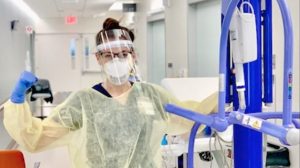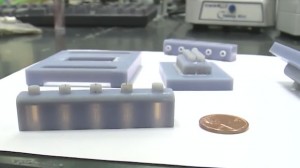NEW YORK (Reuters Health) – In a study of healthy adolescents, a quadrivalent meningococcal glycoconjugate vaccine was more immunogenic than the currently licensed unconjugated vaccine.
Adolescents are at increased risk for meningococcal disease and thus vaccination is recommended against causative serogroups in the US and elsewhere, Dr. Lisa A. Jackson, from the Group Health Center for Health Studies, Seattle, and colleagues note in the February issue of The Pediatric Infectious Disease Journal.
The goal of the current study was to determine if a diphtheria toxoid protein-conjugated vaccine being developed by Novartis Vaccines is as safe and effective as the unconjugated vaccine currently in use. Both vaccines target the same four meningococcal serogroups: A, C, W-135, and Y.
In the first stage of the trial, 334 healthy subjects 11-17 years old were randomized to receive the conjugated vaccine with adjuvant or the unconjugated vaccine. In the second stage, 190 subjects received the conjugated vaccine without adjuvant or the unconjugated vaccine.
All of the vaccines were well tolerated and the frequency of local and systemic reactions was similar with each, the authors note.
Comparable levels of human complement serum bactericidal activity (hSBA) were seen with the conjugated vaccine with and without adjuvant.
Compared to the unconjugated vaccine, the conjugated ones provided greater immunogenicity with higher hSBA titers against all four serogropups at 1 month.
At 12 months, a higher percentage of subjects given the conjugated vaccine achieved hSBA titers of 1:4 or higher against serogroups C, W-135, and Y compared with subjects given the unconjugated vaccine.
The results support further evaluation of the non-adjuvanted conjugated meningococcal vaccine in clinic trials, the authors conclude, “with the aim of providing a vaccine that will be broadly protective in all age groups.”
Reference:
Pediatr Infect Dis J 2009;28:86-91.




